Find Help
More Items From Ergsy search
-

Epilepsy - What is Epilepsy and What Causes Seizures - NHS A to Z - Dr Gill
Relevance: 100%
-

Epilepsy - My Story | NHS
Relevance: 76%
-

Neurosurgery for Epilepsy
Relevance: 73%
-
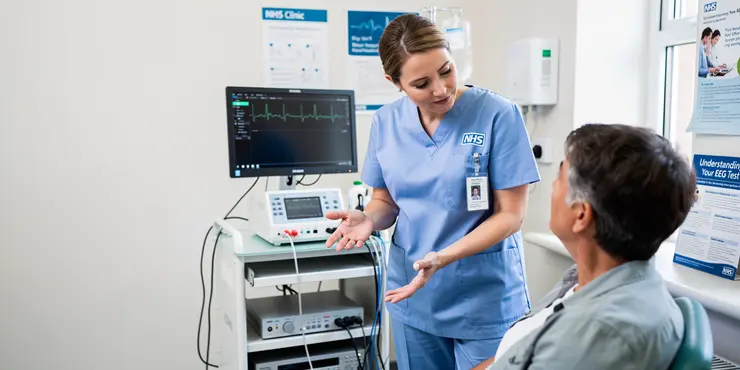
Epilepsy research: EEG | NHS
Relevance: 66%
-
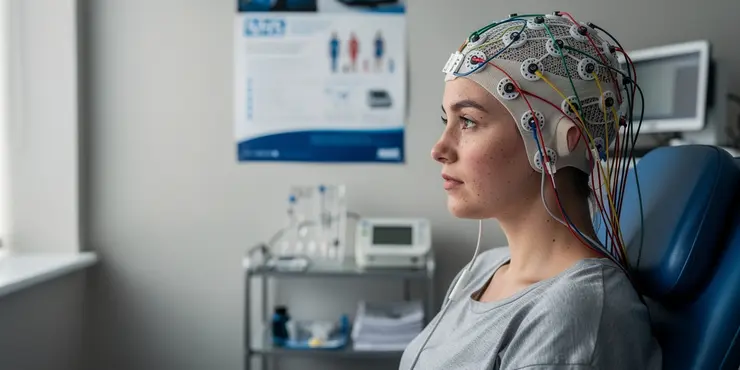
Epilepsy research: EEG | NHS
Relevance: 64%
-

What are the potential benefits of CBD?
Relevance: 31%
-

Can meningitis cause long-term complications?
Relevance: 29%
-

Am I affected by Sodium Valproate?
Relevance: 26%
-

Are there health benefits to using cannabis extract?
Relevance: 18%
-

What are the uses of cannabis extract?
Relevance: 17%
-

Neurophysiology EEG Patient Information
Relevance: 16%
-

What is CBD?
Relevance: 15%
-

What are the signs of meningitis in infants?
Relevance: 14%
-
What are the symptoms of methanol poisoning?
Relevance: 13%
-

What are common symptoms of meningitis?
Relevance: 13%
-

What are some common defenses against drug offence charges?
Relevance: 12%
-
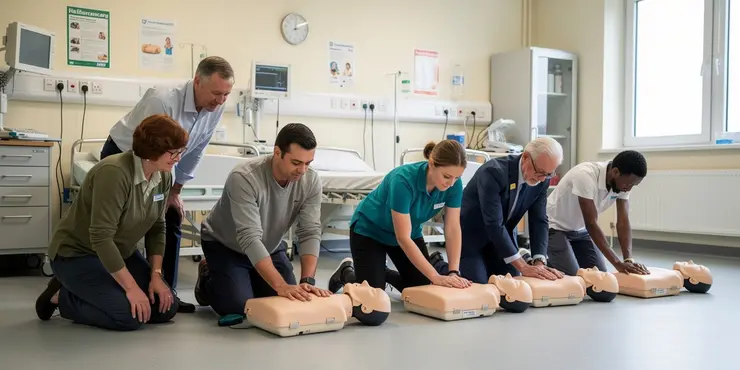
What topics are covered in a first aid course?
Relevance: 12%
-

What is a Subarachnoid Hemorrhage?
Relevance: 12%
-

What are the symptoms of West Nile Virus?
Relevance: 11%
-

What happens when my child has an EEG?
Relevance: 10%
-
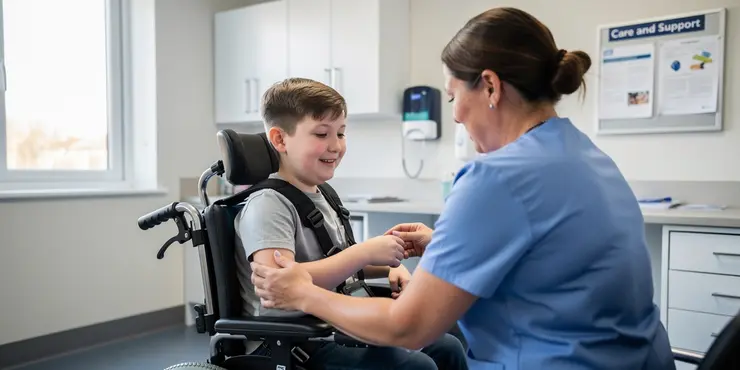
Profound intellectual and multiple disabilities | NHS
Relevance: 10%
-
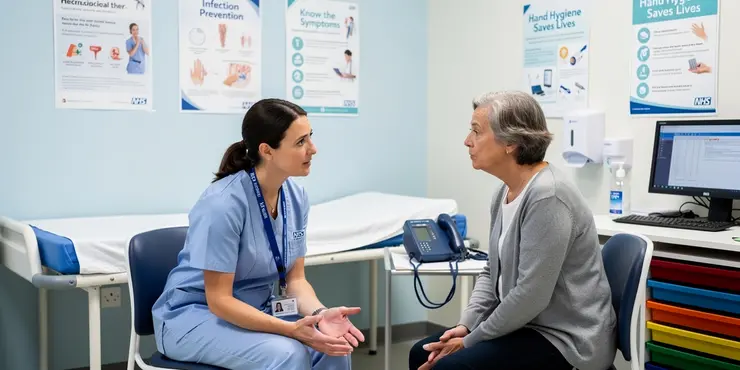
Can Nipah Virus cause neurological complications?
Relevance: 10%
-
What is alcohol poisoning?
Relevance: 10%
-

How does methanol poisoning differ from ethanol poisoning?
Relevance: 10%
-

What are the symptoms of Nipah Virus infection?
Relevance: 10%
-

Is it safe to sleep after a concussion?
Relevance: 9%
-
Can low salt intake be harmful?
Relevance: 9%
-

How does CBD work?
Relevance: 9%
-

What is CBD?
Relevance: 9%
-

What are some complications associated with H3N2?
Relevance: 9%
-

What is cannabis extract?
Relevance: 9%
-
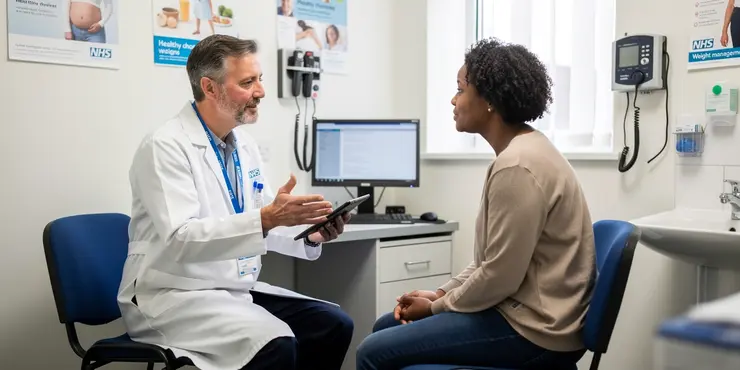
What are the less common but serious side effects of weight loss drugs?
Relevance: 9%
-

What are the common symptoms of lupus in children?
Relevance: 8%
-

What should you do if you suspect methanol poisoning?
Relevance: 8%
-
Why is methanol sometimes found in illegally produced alcohol?
Relevance: 8%
-

Is it safe to use aspirin to treat chickenpox symptoms?
Relevance: 8%
-

What is the difference between possession and possession with intent to distribute?
Relevance: 8%
-

What is West Nile Virus?
Relevance: 8%
-
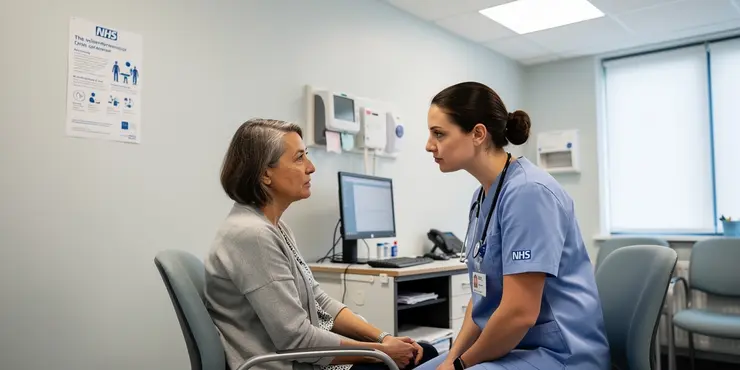
Is CBD legal?
Relevance: 7%
-

What is the entourage effect in relation to cannabis extracts?
Relevance: 7%
Epilepsy - NHS A to Z - Dr Gill
What is Epilepsy?
Epilepsy is a neurological condition affecting the brain, leading to recurrent and unprovoked seizures. These seizures result from sudden, excessive electrical discharges within the brain. People of all ages can develop epilepsy, and it is one of the most common neurological disorders observed. Those living with epilepsy may experience various types of seizures, which can differ greatly from person to person. Epilepsy can impact daily life, but many individuals manage it well with appropriate medical care.
What Causes Seizures?
Seizures can be triggered by several factors, though the exact cause often remains unknown. Some common causes of seizures include:
- Genetic Factors: Heredity can play a role in epilepsy, with certain forms being more likely if a close family member is affected.
- Brain Injuries: Traumatic injuries to the brain from accidents or surgery can lead to epilepsy.
- Medical Conditions: Conditions like stroke, brain tumours, or infections (e.g., meningitis) can result in seizures.
- Prenatal Injuries: Brain damage occurring before or during birth can lead to seizure disorders later in life.
- Developmental Disorders: Disorders such as autism can also be associated with epilepsy.
Understanding the cause of seizures can aid in the precise diagnosis and tailored treatment of epilepsy. In the UK, the NHS provides comprehensive support for those with epilepsy, guiding treatment plans that may include medication, lifestyle changes, and in some cases, surgery to help control seizures effectively.
Epilepsy - NHS A to Z - Dr Gill
What is Epilepsy?
Epilepsy is a problem with the brain. It makes people have seizures. A seizure is when lots of electrical signals happen in the brain all at once. Anyone can have epilepsy, children and grown-ups too. It is common. People with epilepsy have different kinds of seizures. This might change from person to person. Epilepsy can make life hard, but doctors can help. Many people with epilepsy live well with the right treatment.
What Causes Seizures?
Sometimes we know what starts a seizure. But other times, we do not. Here are some things that can cause seizures:
- Genetic Factors: Epilepsy can run in families. If your parent or brother/sister has it, you might too.
- Brain Injuries: Getting hurt in your head, like from a car accident, can cause seizures.
- Medical Conditions: If you have a stroke or a brain infection, you might have seizures.
- Prenatal Injuries: Sometimes, things that happen to you before you are born can cause seizures when you are older.
- Developmental Disorders: If you have autism, you might also have epilepsy.
Knowing why seizures happen helps doctors decide how to help. In the UK, the NHS can help people with epilepsy. The help includes medicine, advice on changing habits, and sometimes surgery. This helps control seizures.
Frequently Asked Questions
What is epilepsy?
Epilepsy is a neurological disorder characterized by recurrent, unprovoked seizures due to abnormal electrical activity in the brain.
What causes seizures in epilepsy?
Seizures in epilepsy can be caused by various factors including genetic influences, head trauma, brain conditions, prenatal injury, and developmental disorders.
How is epilepsy diagnosed?
Epilepsy is diagnosed through several methods including medical history, neurological examinations, blood tests, and imaging tests like MRI and CT scans, as well as electroencephalograms (EEGs).
What are the types of seizures associated with epilepsy?
There are two main types of seizures: focal onsets (formerly known as partial seizures) which affect a specific part of the brain, and generalised onsets which affect both sides of the brain.
Can epilepsy be treated?
Yes, treatments for epilepsy include medications, lifestyle changes, surgical options, and alternative therapies. The aim is to control or reduce the frequency of seizures.
Is epilepsy a lifelong condition?
Epilepsy can be a lifelong condition for some individuals, while others may eventually outgrow it. With effective treatment, many individuals with epilepsy can lead normal lives.
What should I do if someone is having an epileptic seizure?
Stay calm, protect the person from injury by moving harmful objects away, place them in a recovery position once the seizure stops, and do not hold them down or put anything in their mouth. Call emergency services if the seizure lasts longer than 5 minutes.
Can people with epilepsy drive in the UK?
People with epilepsy in the UK may be allowed to drive if they meet specific medical standards, including being seizure-free for a period determined by the DVLA (Driver and Vehicle Licensing Agency).
What triggers seizures in individuals with epilepsy?
Common triggers for seizures include sleep deprivation, stress, flashing lights (photosensitivity), alcohol, and missed medication.
Are there any side effects associated with epilepsy medications?
Yes, side effects from epilepsy medications can include dizziness, fatigue, weight gain, mood changes, and in some cases more severe reactions. It's important to discuss any side effects with your healthcare provider.
Is there a cure for epilepsy?
Currently, there is no cure for epilepsy, but many people achieve complete seizure control using various treatments.
Can children have epilepsy?
Yes, epilepsy can occur at any age, including in children. It can be due to various factors, including genetic predispositions and developmental issues.
How does epilepsy affect daily life?
Epilepsy can impact daily life by affecting physical safety, emotional well-being, education, employment, and social activities. Proper management and support can alleviate many of these challenges.
What lifestyle changes can help manage epilepsy?
Lifestyle changes such as maintaining a regular sleep schedule, reducing stress, avoiding known seizure triggers, and following a balanced diet can help manage epilepsy.
Can epilepsy affect mental health?
Yes, people with epilepsy are at an increased risk for mental health issues like depression and anxiety. Support from healthcare providers, family, and support groups can be beneficial.
What is epilepsy?
Epilepsy is an illness. It makes people have fits or seizures. A seizure is when someone's brain has too much activity. Their body might shake, or they might not know what is happening.
Here are some things that can help:
- Seizure medicine given by a doctor can help.
- Listening to music or relaxing activities can help some people feel better.
- Always be with someone who knows about your seizures.
Epilepsy is a problem with the brain. It makes people have seizures. Seizures happen because of unusual electrical signals in the brain.
What makes people have seizures in epilepsy?
Epilepsy is when someone has seizures often. A seizure is like an unexpected electrical storm in the brain. It changes how the brain works for a short time.
Some things that might cause seizures are:
- Not enough sleep
- Too much stress
- Flashing lights
- Some medicines
- Being sick or having a fever
It can help to write down when seizures happen and what happened before. This can show if there is a pattern or trigger.
Using a reminder app or having someone to talk to can help manage and understand epilepsy better.
Seizures happen in epilepsy because of different reasons. Some reasons are:
- Genes from family
- Hitting your head very hard
- Problems in the brain
- Getting hurt before you are born
- Growing and learning problems
If this is hard to read, try using tools that read the text out loud or ask someone to read with you.
How do doctors know if someone has epilepsy?
Doctors have different ways to find out if someone has epilepsy. They will ask about your past health problems, check your brain and body, do blood tests, and take pictures of your brain with machines like MRI and CT scans. They also use a special test called an EEG to see how your brain is working.
What kinds of seizures happen with epilepsy?
People with epilepsy can have different kinds of seizures. Here are some common ones:
- Tonic-Clonic Seizures: These can make a person's body stiff and shake.
- Absence Seizures: A person might stop and stare for a short time. They may not notice what is happening around them.
- Focal Seizures: These start in one part of the brain. They can cause movements or feelings in just one part of the body.
Tip: A picture or video might help explain more. Ask a doctor or use a trusted website to learn more.
There are two main kinds of seizures:
- Focal Onsets: These used to be called partial seizures. They happen in one part of the brain.
- Generalised Onsets: These happen on both sides of the brain.
If you want to learn more or need help, you can use pictures, watch videos, or ask someone to explain it to you.
Can epilepsy be treated?
Yes, epilepsy can often be helped. Doctors have different ways to treat it. People with epilepsy can take medicine to help stop seizures. Some people may need more help, like a special diet or surgery.
If you have questions, it is good to talk to a doctor. They can explain and help you find the best way to manage epilepsy.
Using picture cards or watching videos can also help you understand more.
Yes, there are ways to help people with epilepsy. Doctors can give medicines, suggest changes to daily habits, perform surgeries, or try different therapies. The goal is to make seizures happen less often or stop them completely.
Will you have epilepsy forever?
Epilepsy is a condition that makes people have seizures. Some people might have it for a long time. Others might stop having seizures when they get older.
If you have epilepsy, it is important to go to the doctor. The doctor can help you manage it. You might take medicine or need other treatments to help you feel better.
Some tools can help you understand epilepsy better:
- A picture book about epilepsy
- A simple video that explains seizures
- Talking to a friend or family member who understands epilepsy
Some people have epilepsy for their whole life. Other people might stop having it when they get older. With the right help, many people with epilepsy can live like everyone else.
What to Do if Someone Has a Seizure
Here is how to help if someone has a seizure:
- Stay calm and keep others calm.
- Move things away from the person, so they don't get hurt.
- Put something soft under their head.
- Turn them onto their side.
- Do not hold them down or put anything in their mouth.
- Check the time - if the seizure lasts more than 5 minutes, call for help.
- Stay with them until they are awake and feeling better.
You can also use picture cards or watch a video to learn what to do during a seizure. This can help you feel ready.
Stay calm. Move things away so the person doesn't get hurt. After the seizure stops, help them lie on their side. Do not hold them down. Do not put anything in their mouth. Call the emergency number if the seizure lasts more than 5 minutes.
Can people with epilepsy drive in the UK?
People with epilepsy might be able to drive in the UK. It depends on their health.
If someone with epilepsy wants to drive, they need to talk to their doctor.
The doctor will check if it's safe for them to drive.
If the doctor says it's safe, then they can ask for a driving license.
Tools like sticky notes or alarms can help remind them to take their medicine on time.
If you have epilepsy and live in the UK, you might be able to drive. You need to pass certain health checks. This includes not having a seizure for a time chosen by the DVLA (Driver and Vehicle Licensing Agency).
What causes seizures for people with epilepsy?
Some people have a condition called epilepsy. This can cause them to have seizures.
Different things can make seizures happen. These things are called triggers.
Here are some common triggers:
- Flashing lights or bright lights.
- Not getting enough sleep.
- Stress or feeling worried.
- Certain foods or drinks.
If you have seizures, it is important to know your triggers. This can help you avoid them.
You can also talk to a doctor. They can give you medicine to help manage seizures.
Using a diary or an app can help you track what causes your seizures.
Things that can cause seizures are:
- Not getting enough sleep
- Feeling very stressed
- Flashing lights
- Drinking alcohol
- Forgetting to take medicine
Tools that can help:
- Use an alarm to remind you to take your medicine
- Try to get plenty of sleep every night
- Use stress balls or breathing exercises to feel calm
- Avoid things like video games with lots of flashing lights
- Ask a grown-up for help if you are worried
Do epilepsy medicines have any side effects?
Sometimes, taking epilepsy medicine can have side effects. Side effects are feelings or problems that can happen when you take medicine.
If you feel strange after taking your medicine, tell your doctor.
Here are some tips to help you:
- Keep a diary of how you feel after taking your medicine.
- Ask someone to help you understand the information about the medicine.
- Talk to your doctor or nurse if you have questions.
Yes, epilepsy medicine can cause some side effects. You might feel dizzy or very tired. Some people gain weight or feel changes in their mood. Sometimes, the side effects can be more serious.
It's really important to talk to your doctor if you notice any side effects.
Using simple tools like a feelings chart can help you explain how you feel. Also, writing in a diary can help you remember what to tell your doctor.
Can epilepsy be fixed?
Right now, there is no way to make epilepsy go away completely. But, lots of people can stop having seizures by using different treatments.
Can kids get epilepsy?
Yes, kids can have epilepsy. Epilepsy is a health problem that affects the brain. It can cause seizures, which are like sudden bursts of electricity in the brain. These can make a person shake or stop what they are doing for a little while.
If you think a child might have epilepsy, talk to a doctor. The doctor can help find out what's happening and give medicine to help.
Some helpful tools or techniques are:
- Using a diary to write down when seizures happen.
- Setting reminders to take medicine on time.
- Wearing a bracelet that tells people about the epilepsy in case of an emergency.
With the right care, many kids with epilepsy can do the things they like and have fun with their friends.
Yes, people can have epilepsy at any age, even children. It can happen because of different reasons, like family history or problems as they grow.
How does epilepsy affect everyday life?
Epilepsy is a condition that can make people have seizures. This can change how they live each day. Here are some ways it might affect them:
- Feeling Tired: Having a seizure can make someone feel very tired.
- Memory Problems: It might be hard for them to remember things.
- Being Careful: They need to be careful when doing things like swimming or climbing.
- Taking Medicine: They might need to take medicine every day.
- Being Safe: Some people use alarms or have someone with them to help keep them safe.
If you know someone with epilepsy, you can help by being kind and understanding.
Epilepsy can make everyday life harder. It can change how safe you feel, how happy you are, your learning, your work, and your time with friends. Getting help and learning how to manage it can make these things easier.
How can changing your daily habits help you with epilepsy?
Epilepsy is a condition that affects the brain and can cause seizures. Making some changes in your daily habits can help you feel better and reduce seizures.
Here are some simple things you can do:
- Get good sleep: Try to go to bed and wake up at the same time every day. Sleep helps your brain rest.
- Eat healthy foods: Eating fruits, vegetables, and whole grains is good for your brain.
- Exercise regularly: Playing outside or doing sports can make you feel good and help your brain.
- Relax: Spend time doing things you enjoy, like drawing or listening to music. This can help you feel calm.
- Avoid triggers: Some things, like flashing lights or stress, can make seizures happen. Try to stay away from these.
If you find it hard to follow these tips, ask a family member, friend, or teacher for help. They can help you make a plan that works for you.
Making small changes in your life can help with epilepsy. These changes include:
- Going to bed and waking up at the same time every day.
- Finding ways to stress less, like doing relaxing activities.
- Staying away from things that can cause seizures.
- Eating a mix of healthy foods.
Can epilepsy change how we feel?
Epilepsy is a health problem that can cause seizures (shaking episodes). It can also change how we feel and think. This is called our mental health.
If you have epilepsy, you might feel sad or worried sometimes. It can make it harder to do things like going to school or playing with friends.
It's important to talk to a doctor or a trusted adult if you feel this way. They can help you feel better.
To make things easier, try these tips:
- Keep a routine: Doing the same things every day can help you feel safe.
- Relax: Try deep breathing or listening to music.
- Talk: Share your feelings with a friend or family member.
Remember, it's not your fault, and there are people who want to help you.
Yes, people with epilepsy may feel sad or worried more often. It's important for them to get help from doctors, family, and support groups. This can make them feel better.
Useful Links
This website offers general information and is not a substitute for professional advice.
Always seek guidance from qualified professionals.
If you have any medical concerns or need urgent help, contact a healthcare professional or emergency services immediately.
Some of this content was generated with AI assistance. We’ve done our best to keep it accurate, helpful, and human-friendly.
- Ergsy carfully checks the information in the videos we provide here.
- Videos shown by Youtube after a video has completed, have NOT been reviewed by ERGSY.
- To view, click the arrow in centre of video.
- Most of the videos you find here will have subtitles and/or closed captions available.
- You may need to turn these on, and choose your preferred language.
- Go to the video you'd like to watch.
- If closed captions (CC) are available, settings will be visible on the bottom right of the video player.
- To turn on Captions, click settings .
- To turn off Captions, click settings again.
More Items From Ergsy search
-

Epilepsy - What is Epilepsy and What Causes Seizures - NHS A to Z - Dr Gill
Relevance: 100%
-

Epilepsy - My Story | NHS
Relevance: 76%
-

Neurosurgery for Epilepsy
Relevance: 73%
-

Epilepsy research: EEG | NHS
Relevance: 66%
-

Epilepsy research: EEG | NHS
Relevance: 64%
-

What are the potential benefits of CBD?
Relevance: 31%
-

Can meningitis cause long-term complications?
Relevance: 29%
-

Am I affected by Sodium Valproate?
Relevance: 26%
-

Are there health benefits to using cannabis extract?
Relevance: 18%
-

What are the uses of cannabis extract?
Relevance: 17%
-

Neurophysiology EEG Patient Information
Relevance: 16%
-

What is CBD?
Relevance: 15%
-

What are the signs of meningitis in infants?
Relevance: 14%
-
What are the symptoms of methanol poisoning?
Relevance: 13%
-

What are common symptoms of meningitis?
Relevance: 13%
-

What are some common defenses against drug offence charges?
Relevance: 12%
-

What topics are covered in a first aid course?
Relevance: 12%
-

What is a Subarachnoid Hemorrhage?
Relevance: 12%
-

What are the symptoms of West Nile Virus?
Relevance: 11%
-

What happens when my child has an EEG?
Relevance: 10%
-

Profound intellectual and multiple disabilities | NHS
Relevance: 10%
-

Can Nipah Virus cause neurological complications?
Relevance: 10%
-
What is alcohol poisoning?
Relevance: 10%
-

How does methanol poisoning differ from ethanol poisoning?
Relevance: 10%
-

What are the symptoms of Nipah Virus infection?
Relevance: 10%
-

Is it safe to sleep after a concussion?
Relevance: 9%
-
Can low salt intake be harmful?
Relevance: 9%
-

How does CBD work?
Relevance: 9%
-

What is CBD?
Relevance: 9%
-

What are some complications associated with H3N2?
Relevance: 9%
-

What is cannabis extract?
Relevance: 9%
-

What are the less common but serious side effects of weight loss drugs?
Relevance: 9%
-

What are the common symptoms of lupus in children?
Relevance: 8%
-

What should you do if you suspect methanol poisoning?
Relevance: 8%
-
Why is methanol sometimes found in illegally produced alcohol?
Relevance: 8%
-

Is it safe to use aspirin to treat chickenpox symptoms?
Relevance: 8%
-

What is the difference between possession and possession with intent to distribute?
Relevance: 8%
-

What is West Nile Virus?
Relevance: 8%
-

Is CBD legal?
Relevance: 7%
-

What is the entourage effect in relation to cannabis extracts?
Relevance: 7%


